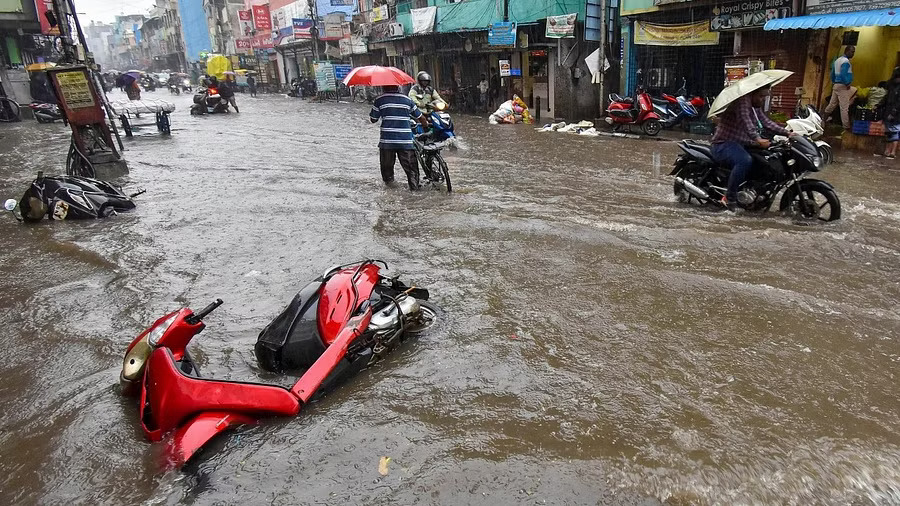Chennai and its neighboring districts find themselves grappling with the aftermath of heavy rains that have battered the region, leading to widespread disruptions and concerns over flooding. The unrelenting downpour has prompted authorities to issue warnings and mobilize emergency response teams to address the challenges posed by the inclement weather.
The heavy rains have inundated several low-lying areas, causing waterlogging and traffic snarls in Chennai. The city, accustomed to occasional bouts of monsoon rains, is now confronted with the intensified impact of continuous downpours, testing the resilience of its infrastructure and preparedness for such weather events.
The districts surrounding Chennai have also borne the brunt of the deluge, with reports of flooding in various areas. As rivers swell and water bodies overflow, concerns about potential inundation of residential areas and agricultural fields add to the complexity of the situation. The need for coordinated efforts between local authorities, disaster management agencies, and the community becomes crucial to mitigate the impact and ensure the safety of residents.
The heavy rains raise alarm bells about the vulnerability of urban areas to extreme weather events and the importance of sustainable urban planning. Drainage systems, stormwater management, and the resilience of critical infrastructure come under scrutiny during such challenging times. The episode in Chennai serves as a reminder of the imperative to invest in climate-resilient infrastructure to withstand the increasing frequency and intensity of extreme weather events.
Emergency response teams are working round the clock to evacuate stranded individuals, provide relief to affected areas, and address emergencies triggered by the heavy rains. The cooperation of citizens in adhering to safety protocols and directives from authorities becomes paramount in ensuring a swift and effective response to the crisis.
In the context of climate change, where erratic weather patterns are becoming more prevalent, proactive measures for disaster preparedness and mitigation are integral to building resilient communities. Chennai’s current predicament underscores the urgency for long-term strategies that encompass urban planning, infrastructure development, and community engagement to cope with the challenges posed by extreme weather events.
In conclusion, the heavy rains lashing Chennai and nearby districts underscore the vulnerability of urban areas to the impacts of climate change. The immediate focus on rescue and relief operations is essential, but the incident also prompts a broader conversation about the need for sustainable urban development and proactive measures to mitigate the impact of increasingly frequent and intense weather events.
Sponsored
FACTS Transcripts
Apply for a University document anywhere
https://www.factstranscript.com
Quick Transcripts for popular Universities, check your University name now and get started. We help you to get your transcript application online which is accepted for use of IRCC.
No DD, NO Paperwork. 100% Authentic, Reliable.
FACTS Transcripts Charges · Reviews · Assam Universities · Home · Know your University









